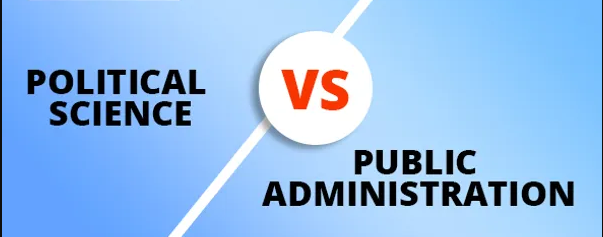If you are a candidate for the UPSC examination, you do understand the importance of choosing an optional subject for the UPSC Main examination.
As deduced from the previous year's pattern, political science and public administration subjects are highly preferred by UPSC candidates. Both subjects, Political Science and Public Administration comprise relatively easy concepts that overlap with general studies papers and therefore have high takers.
But if you cannot decide which subject to choose among the subjects, stick to the end of the article as we share details on both subjects.
Political Science & International Relations
Syllabus
Paper 1; Section A
Political Theory and Indian Politics
Concept of power
Democracy
Equality
Indian Political Thought
Justice
Political theory meaning and approaches
Political Ideologies: Liberalism, Socialism, Marxism, Fascism, Gandhism, and Feminism
Rights: Meaning and theories; different kinds of rights; the concept of Human Rights
Theories of the state: Liberal, Neo-liberal, Marxist, Pluralist, Post-colonial and feminist
Western Political Thought: Plato, Aristotle, Machiavelli, Hobbes, Locke, John S. Mill, Marx, Gramsci, Hannah Arend
Section B
Indian Government and Politics
Caste, Religion and Ethnicity in Indian Politics
Federalism
Indian Nationalism
Grassroots Democracy: Panchayati Raj and Municipal Government; the significance of 73rd and 74th Amendments; Grassroot movements
Making of the Indian Constitution: Legacies of the British rule; different social and political perspectives
Party System
Perspectives on Indian National Movement: Liberal, Socialist and Marxist; Radical humanist and Dalit
Planning and Economic Development
Political Strategies of India's Freedom struggle: constitutionalism to mass Satyagraha, Non-cooperation, Civil Disobedience; militant and revolutionary movements, Peasant and workers' movements
Principal Organs of the Union Government: Envisaged role and actual working of the Executive, Legislature and Supreme Court
Principal Organs of the State Government: Envisaged role and actual working of the Executive, Legislature and High Courts
Salient Features of the Indian Constitution
Statutory Institutions/Commissions
Social Movements: Civil liberties and human rights movements; women's movements; environmentalist movements
Paper 2
Comparative Analysis and International Politics
Approaches to the Study of International Relations: Idealist, Realist, Marxist, Functionalist and Systems theory
Changing International Political Order
Comparative Politics
Contemporary Global Concerns
Evolution of the International Economic System
Globalisation: Responses from developed and developing societies
Key concepts in International Relations
Politics of Representation and Participation
Regionalisation of World Politics: EU, ASEAN, APEC, SAARC, NAFTA
State in comparative perspective: Characteristics and changing nature of the State in capitalist and socialist economies, and advanced industrial and developing societies
United Nations: Envisaged role and actual record; specialised UN agencies-aims and functioning; the need for UN reforms
Paper 3
India and the World
India and South Asia
India and the Global South
India and the Global Centers of Power: USA, EU, Japan, China and Russia
India and the UN System: Role in UN Peace-keeping; demand for Permanent Seat in the Security Council
India's Contribution to the Non-Alignment Movement: Different phases; current role
Indian Foreign Policy: Determinants of foreign policy; institutions of policy-making; continuity and change
India and the Nuclear Question: Changing perceptions and policy
Recent developments in Indian Foreign policy
Pros
Syllabus overlap with general studies paper, especially economy, world affairs, modern India, and international political economy
The syllabus is relatively smaller and could be finished within time due to overlap
Questions can be deduced and are more balanced.
Aids in the preparation of current affairs
Studying this subject can be beneficial in the Interview round as well.
Cons
Excellent writing skills are required
Political ideologies can be difficult to comprehend.
Public Administration
Syllabus
Paper 1
Introduction
Accountability and control
Administrative Behavior: Process and techniques of decision-making; Communication; Morale; Motivation Theories – content, process, and contemporary; Theories of Leadership: Traditional and Modern
Administrative Thought
Administrative Law: Meaning, scope, and significance; Dicey on Administrative law; Delegated legislation; Administrative Tribunals
Comparative Public Administration
Development Dynamics
Financial Administration: Monetary and fiscal policies; Public borrowings and public debt Budgets - types and forms; Budgetary process; Financial accountability; Accounts and audit
Organisations
Personnel Administration
Public Policy
Techniques of Administrative Improvement: Organization and methods, Work study and work management; e-governance and information technology; Management aid tools like network analysis, MIS, PERT, CPM
Paper 2
Indian Administration
Administrative Reforms since Independence
Civil Services
District Administration since Independence
Evolution of Indian Administration
Financial Management
Philosophical and Constitutional framework of government: Salient features and value premises; Constitutionalism; Political culture; Bureaucracy and democracy; Bureaucracy and development
Public Sector Undertakings: Public sector in modern India; Forms of Public Sector Undertakings; Problems of autonomy, accountability, and control; Impact of liberalization and privatization
Plans and Priorities
State Government and Administration
Union Government and Administration
Law and Order Administration
Significant issues in Indian Administration
Rural Development: Institutions and agencies since independence; Rural development programs: foci and strategies; Decentralization and Panchayati Raj; 73rd Constitutional amendment
Urban Local Government
Pros
The syllabus is easy to comprehend
Good study material is available both online and offline
Questions are straightforward
The syllabus overlap with the general studies paper
Studying this subject will prove beneficial while writing essay questions and during the Interview round.
This subject has the highest success rate and benefits future administrators.
Cons
Some candidates may find the subject a bit theoretical, and the syllabus can be quite vast.
Prepare the subject well, as most candidates opt for this optional subject
The paper can be quite dynamic, and the questions can be difficult to comprehend.
Now there you go; hopefully, the article was able to showcase the differences between public administration and political science & international relations as optional subjects.
While choosing the optional subject, go through the syllabus, check whether it benefits you in the long run for UPSC preparation and gauge whether you will be excited to prepare the subject. Once you have your questions answered, take the final decision.

